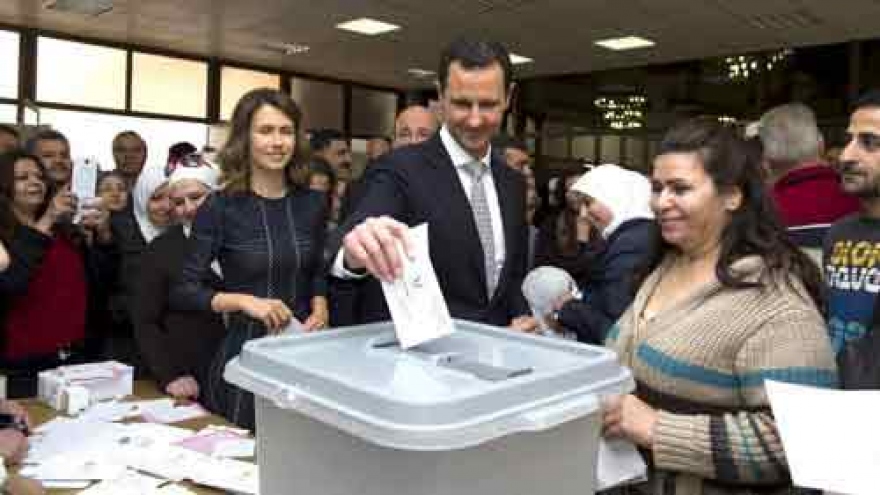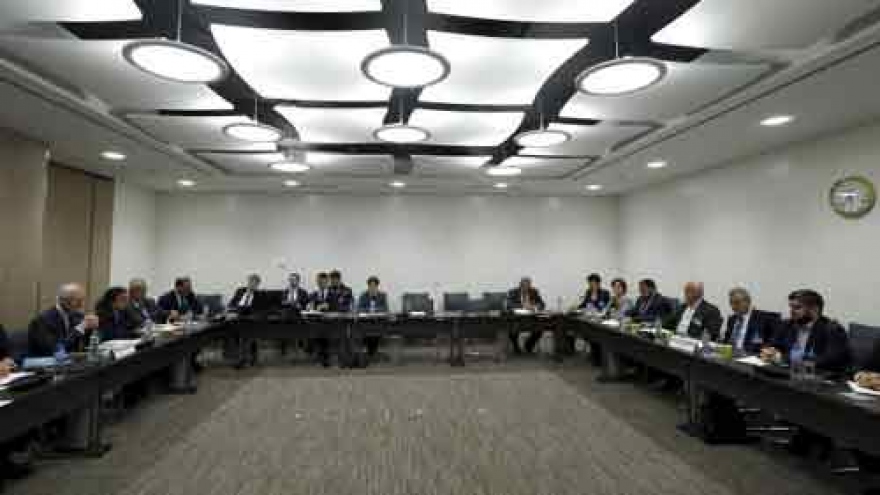Scepticism about Syria’s parliamentary election
VOV.VN - The Syria People’s Assembly election began on April 13. It was the second parliamentary election since civil war broke out in Syria in 2011.
 |
The public is skeptical about the election’s efect on Syria’s security and economy.
3,000 candidates from all provinces competed for 250 seats in the Syrian Parliament. The Higher Judicial Committee for Elections said all 7,000 polling stations across the country opened from 7:00 am to 7:00 pm.
Two key issues: security and economy
Hisham Al Shaar, Chairman of the Higher Judicial Committee for Elections says voters in Idlib, Raqqa, Aleppo, Deir al-Zour, and certain other provinces which are under terrorist control can cast their ballots in other administrative areas.
Publicity for the election has been extensive. Voters are hoping security will soon be restored.
In the past 5 years, civil war has claimed the lives of 250,000 people and caused the biggest migration in recent history.
Syria’s economic recession is another big concern. President Bashar al-Assad says the 5 years of intense fighting have cost Syria an estimated US$200 billion.
The figure matches the UN’s estimate of a loss of US$90 billion in destroyed assets and another US$170 billion in lost GDP.
Voters are especially concerned about limiting corruption to conserve resources for national reconstruction. Some candidates have campaigned on slogans like “Together to reconstruct Syria” and “Glory for the votes”.
Will the election result bring peace to Syria?
The People’s Assembly election is opposed by Syria’s opposition parties and the West. A representative of the opposition has said President Bashar al-Assad wants to hold an election to upstage the Geneva peace negotiation.
The Higher Judicial Committee, representing many opposition groups in Syria, has said the election violates the law. Aleksey Arbatov, Director of the Center for International Security of the Russian Academy of Sciences, says the parliamentary election will negatively affect the Syrian truce.
Many observers say President Bashar al-Assad is taking advantage of the election to strengthen his power.
Professor Zeev Khanin of Bar-Ilan University has described two scenarios. If the election takes place transparently and publicly, the party of the President will not win enough votes.
If the election follows the old pattern, the Baas party will win a majority of votes. Professor Khanin says that even though security has been tightened IS attacks on polling stations are likely.
Many Syrians say they do not go to the polls because there are no qualified candidates.
Russian President Vladimir Putin says the election is independent and will not affect the UN-back peace negotiations in Geneva.
The UN has called on Syria to hold presidential and parliamentary elections within 18 months as an integral part of the peace process.



